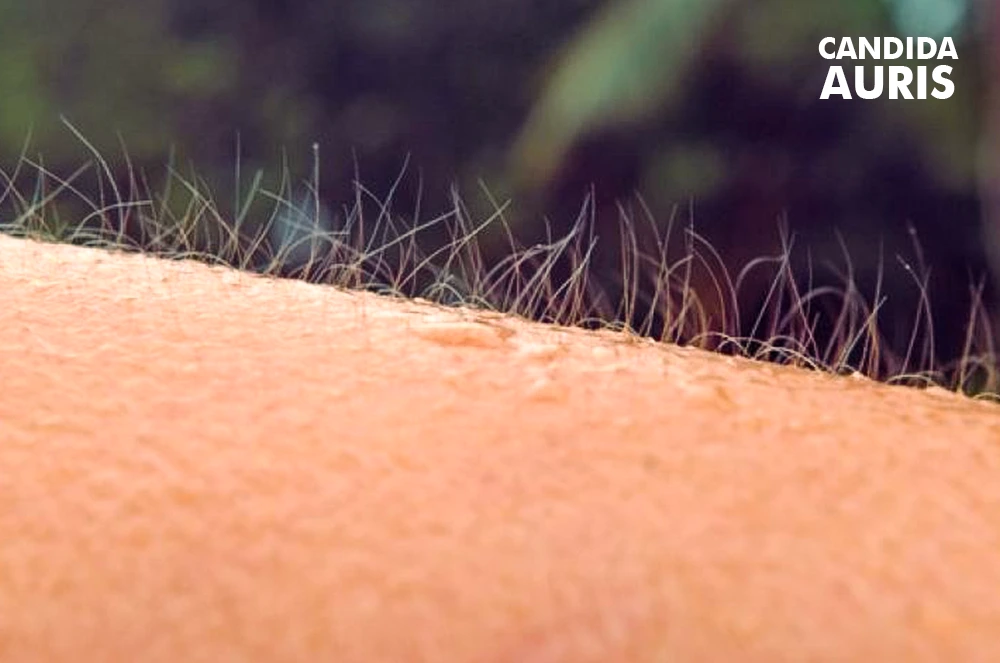
HEALTH BLOG
Understanding Candida Auris Treatment: Causes, Symptoms, Diagnose and Testing
-
 Rahul Priydarss
Rahul Priydarss - February 1, 2024

T
his elusive pathogen has garnered attention due to its resistance to common antifungal medications for Candida auris Tretment.
Table of Contents
Understanding Candida Auris Treatment:
In recent years, healthcare professionals have been increasingly concerned about the emergence of a resilient and potentially life-threatening fungal infection known as Candida auris. This elusive pathogen has garnered attention due to its resistance to common antifungal medications and its ability to cause severe infections, especially in healthcare settings. In this blog post, we will delve into the details of Candida auris treatment, causes, symptoms, and available Testing options.
What is Candida auris?:
Candida auris is a type of yeast that can cause infections in various parts of the body, including the bloodstream, ear, and wounds. Discovered in 2009, this multidrug-resistant fungus has since been identified in healthcare facilities across the globe. What makes Candida auris particularly concerning is its ability to persist on surfaces in healthcare environments, leading to outbreaks that can be challenging to control.
Causes and Risk Factors of Candida Auris Treatment:
Here are different risk factors for Candia Auris:
- Hospital Environments: Candida auris is often associated with healthcare settings, where it can spread easily from patient to patient.
- Weakened Immune System: Individuals with compromised immune systems, such as those with diabetes, HIV, or those undergoing cancer treatment, are more susceptible to Candida auris infections.
- Recent Surgery or Hospitalization: The risk of infection increases after surgeries or prolonged hospital stays, where patients may come into contact with the fungus.
- Broad-Spectrum Antibiotic Use: The use of broad-spectrum antibiotics can disturb the balance of microorganisms in the body, paving the way for fungal overgrowth, including Candida auris.
Symptoms of Candida Auris Infection:
The symptoms of Candida auris infection can vary, and some individuals may not show any signs. Common symptoms include:
– Fever and Chills: Persistent fever and chills may be indications of infection.
– Fatigue: Generalized weakness and fatigueness can be early signs of a Candida auris infection.
– Ear Infections: Candida auris can cause ear infections, leading to discomfort and hearing issues.
– Wound Infections: Invasive procedures or surgery may lead to wound infections with Candida auris.

Diagnosis:
Diagnosing Candida auris treatment requires specialized laboratory tests, as the standard diagnostic methods for other types of Candida infections may not identify this particular species. Healthcare providers may collect samples from patients’ blood, urine, or other bodily fluids to send to a laboratory for testing.
Candida auris Testing:
– Candida auris, a newly recognized pathogenic fungus/yeast, has been responsible for outbreaks in healthcare settings across the United States. and this test gives their result in 2 to 3 days maximum.
– This particular organism often exhibits resistance to commonly used antifungal medications, posing challenges in the treatment of infections and increasing the risk of fatalities.
– Timely identification of outbreaks through efficient diagnostic tools and surveillance practices is crucial in curbing the spread of this emerging threat.
– To address the need for effective screening, ARUP Laboratories has introduced a molecular screening test specifically designed for Candida auris, utilizing Polymerase Chain Reaction (PCR) technology (Test Code: 3006370).
– This molecular testing method proves to be a rapid and efficient means of screening individuals who may be colonized with Candida auris but do not exhibit invasive infections This test is New York state-approved.
– The utilization of this PCR assay becomes particularly valuable in the context of healthcare facilities’ surveillance programs.
– By swiftly identifying individuals at risk of colonization, medical professionals can implement appropriate measures to prevent the further dissemination of Candida auris within healthcare settings.
– This proactive approach is vital in maintaining the safety and well-being of patients and preventing the escalation of Candida auris-related challenges.
Candida auris Treatment Options:
Candida auris treatment poses a significant challenge due to the limited antifungal medications effective against it. Treatment often involves antifungal medications such as echinocandins (caspofungin, micafungin, anidulafungin, and rezafungin), itraconazole, Ketoconazole and fluconazole, Anti allergic medicine Such as Ebastine, Bilastine, Levocetrizine, Hydroxizine but resistance has been observed. Healthcare professionals may need to tailor treatment based on the specific strain’s susceptibility.
Prevention and Control:
Preventing the spread of Candida auris is crucial, especially in healthcare settings. Key preventive measures include:
- Hand Hygiene: Complete handwashing is essential for healthcare workers to prevent the transmission of Candida auris.
- Isolation Precautions: Patients with Candida auris infections may need to be placed in isolation to prevent the spread to others.
- Environmental Cleaning: Regular and thorough cleaning of healthcare environments is critical to eliminating the fungus from surfaces.
- Antifungal Stewardship: Proper use of antifungal medications helps prevent the development of resistance.
Frequently Asked Questions (FAQs):
A1: Candida auris is a major multidrug-resistant yeast infection that can cause major infections. It’s a concern in healthcare settings due to its ability to persist on surfaces, leading to challenging-to-control outbreaks.
A2: Individuals with weakened immune systems, recent hospitalizations, surgeries, or those using broad-spectrum antibiotics are at a higher risk of Candida auris infections.
A3: Symptoms include persistent fever and chills, fatigue, ear infections, and wound infections. However, some individuals may not exhibit any symptoms.
A4: Diagnosis involves specialized laboratory tests, as standard methods may not identify this specific yeast. Samples from blood, urine, or other bodily fluids are collected and sent for testing.
A5: Treatment typically involves antifungal medications like echinocandins, but resistance can be a challenge. Tailoring treatment based on the specific strain’s susceptibility is crucial. Preventive measures, including hand hygiene and environmental cleaning, are also essential in controlling the spread.

Review:
1. Comprehensive and Informative! : This article about Candida Auris Treatment brilliantly covers the emerging threat of Candida auris, providing a detailed exploration of its causes, symptoms, and treatment options. The inclusion of preventive measures and the importance of awareness make it an invaluable resource for healthcare professionals and the general public alike.
2. Eye-Opening Read!: An eye-opening article shedding light on Candida auris, its risks, and the challenges in treatment. The clear explanations and practical prevention tips make this a must-read for anyone concerned about healthcare-associated infections. Kudos to the author for making complex information accessible!
3. Timely and Well-Structured!: In a time where understanding emerging health threats is crucial, this article stands out for its clarity and well-structured information. From detailing symptoms to discussing treatment options and prevention, it provides a comprehensive overview. A valuable read for staying informed and proactive.
4. Essential Knowledge in a Nutshell!: This article succinctly delivers essential information about Candida auris, offering a quick yet comprehensive understanding of the issue. The FAQs and preventive measures at the end are particularly helpful. A concise and valuable resource for those wanting to grasp the topic swiftly.
-Remember, Always consult with healthcare professionals or Doctors for personalised advice related to medical conditions.
Conclusion:
Candida auris treatment presents a serious threat to public health, especially in healthcare settings. Here the causes, symptoms, Diagnosis and treatment options are crucial for both Doctors and the general public. Vigilance, early detection, and effective prevention measures are essential in controlling the spread of this resilient fungal infection. As research continues, staying informed about Candida auris is key to addressing this emerging healthcare challenge.
Previous Post




